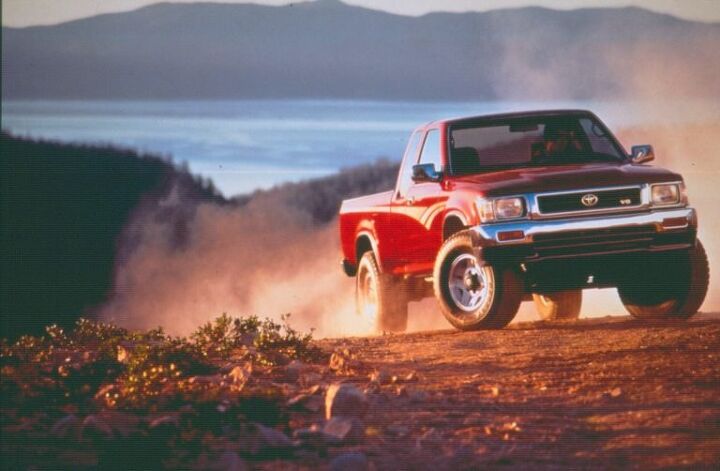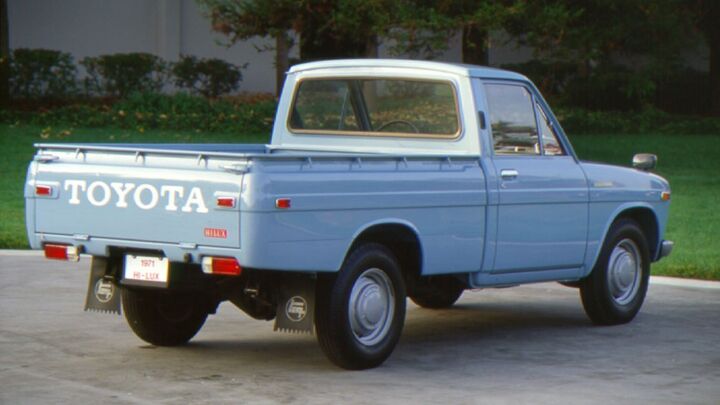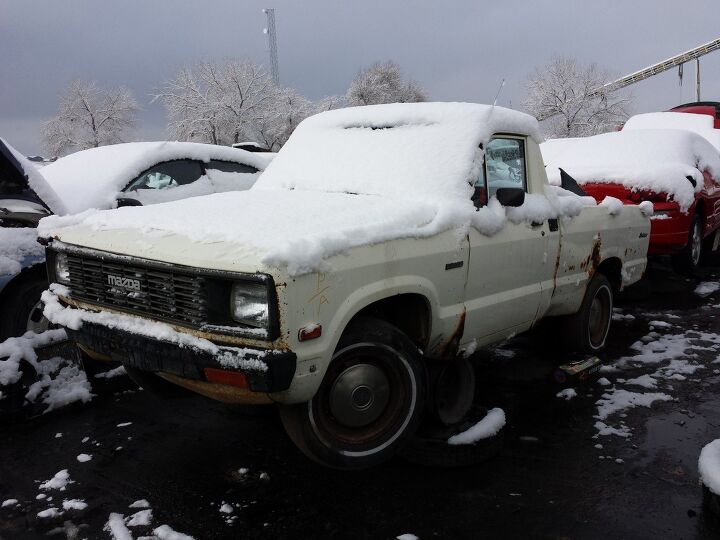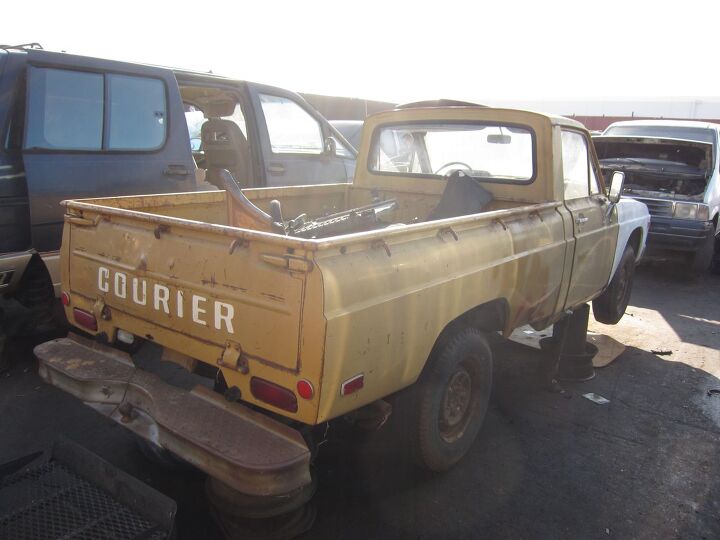#MazdaBSeries
Buy/Drive/Burn: Compact Japanese Pickup Trucks From 1992
Our last two Buy/Drive/Burn entries reflected compact truck offerings in 1972 and 1982. We know you all love talkin’ trucks, so we bring you a subsequent entry in the series today. It’s 1992, and you’ve got to buy a compact Japanese truck.
Hope you can bear the 10-percent interest rate on your loan.
Buy/Drive/Burn: Compact and Captive Pickup Trucks From 1982
In the last edition of Buy/Drive/Burn we pitted three compact pickup trucks from Japan against one another. The year was 1972 — still fairly early in Japan’s truck presence on North American shores. The distant year caused many commenters to shout “We are young!” and then claim a lack of familiarity.
Fine! Today we’ll move it forward a decade, and talk trucks in 1982.
Buy/Drive/Burn: Japanese Trucks From 1972
Buy/Drive/Burn doesn’t talk trucks very often, but today’s an exception. Today’s trio are from the very inception of Japanese compact truck offerings in North America. They mostly rusted away long ago, but perhaps you remember them fondly.
Right now, it’s 1972. Let’s go.
A Selective History Of Minitrucks, Part Two: The Empire Strikes Back, Then Gives Up
In Part One of this minitruckin’ history, we covered how the Big 3 provided their dealers with “captive import” minitrucks from Mazda, Isuzu, and Mitsubishi during the Seventies. By 1975 or thereabouts, both GM and Ford were convinced that the small-pickup market was not a fad and began digging their own products out of the parts bin.
The Chevrolet S-10/GMC S-15 was a sort of truck version of the A-body (later G-body) intermediate. While it’s not dimensionally identical to the older sedans, it’s possible to swap much of the running gear between those two vehicles, particularly ahead of the firewall. The Ford Ranger arrived a few months after the S-10, a few inches smaller in most dimensions and looking remarkably ungainly compared to its sleek GM competitor. Those of you who followed the minitrucking hobby in the Nineties will recall that the Ranger was conspicuous by its absence; “domestic” minitruckers were almost exclusively loyal to the S-10/S-15. Part of that was due to the Twin-I-Beam’s reluctance to accept a lowering kit and/or airbags, but much of it was the Ranger’s hokey, hick-ish appearance compared to the S-10.
So what did that mean for the captive import trucks?
Junkyard Find: 1984 Mazda B2000 Sundowner Pickup
Plenty of Mazda B-Series pickups were sold in the United States, mostly badged as Ford Couriers, but starting in 1983 (when the Ranger appeared) your only choice for obtaining one of these cheap-and-simple little trucks was your Mazda dealer. I spotted this somewhat rusty ’84 in a Denver wrecking yard on Saturday, and it looked like it still had some good miles left in it.
Junkyard Find: 1972 Ford Courier
Until Ford started building Rangers in the early 1980s, their only small pickup was a rebadged Mazda B Series called the Courier. Like so many utilitarian Malaise Era vehicles, Couriers were everywhere… until one day in the early 1990s when just about all of them disappeared. Here’s one of the few that managed to hang on for another couple of decades.




















Recent Comments